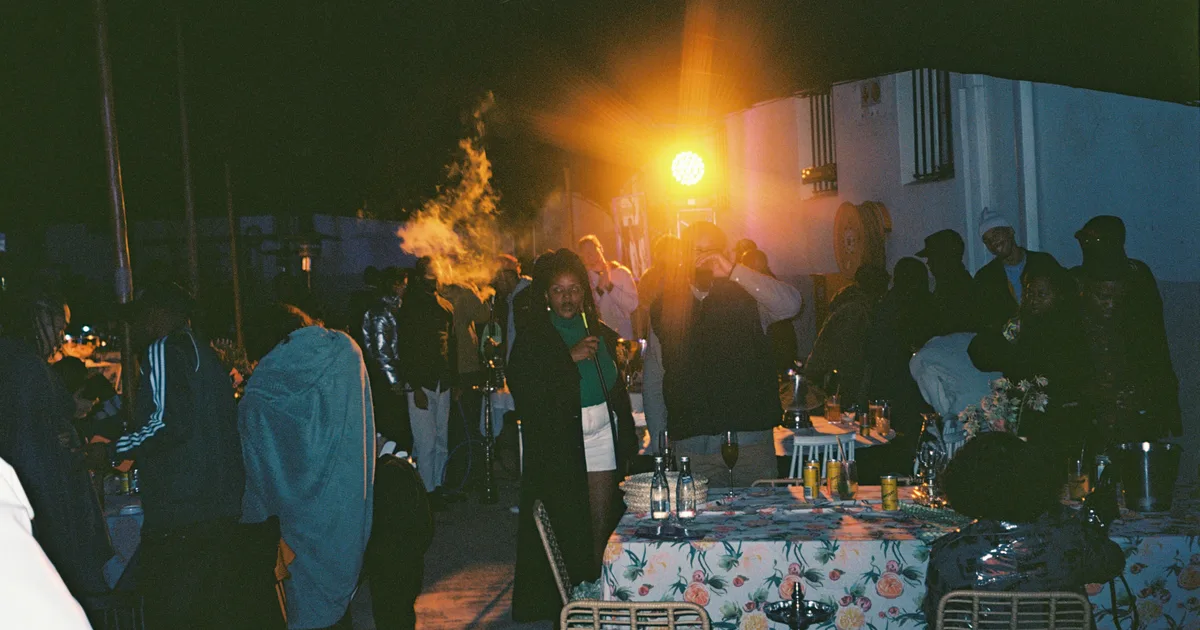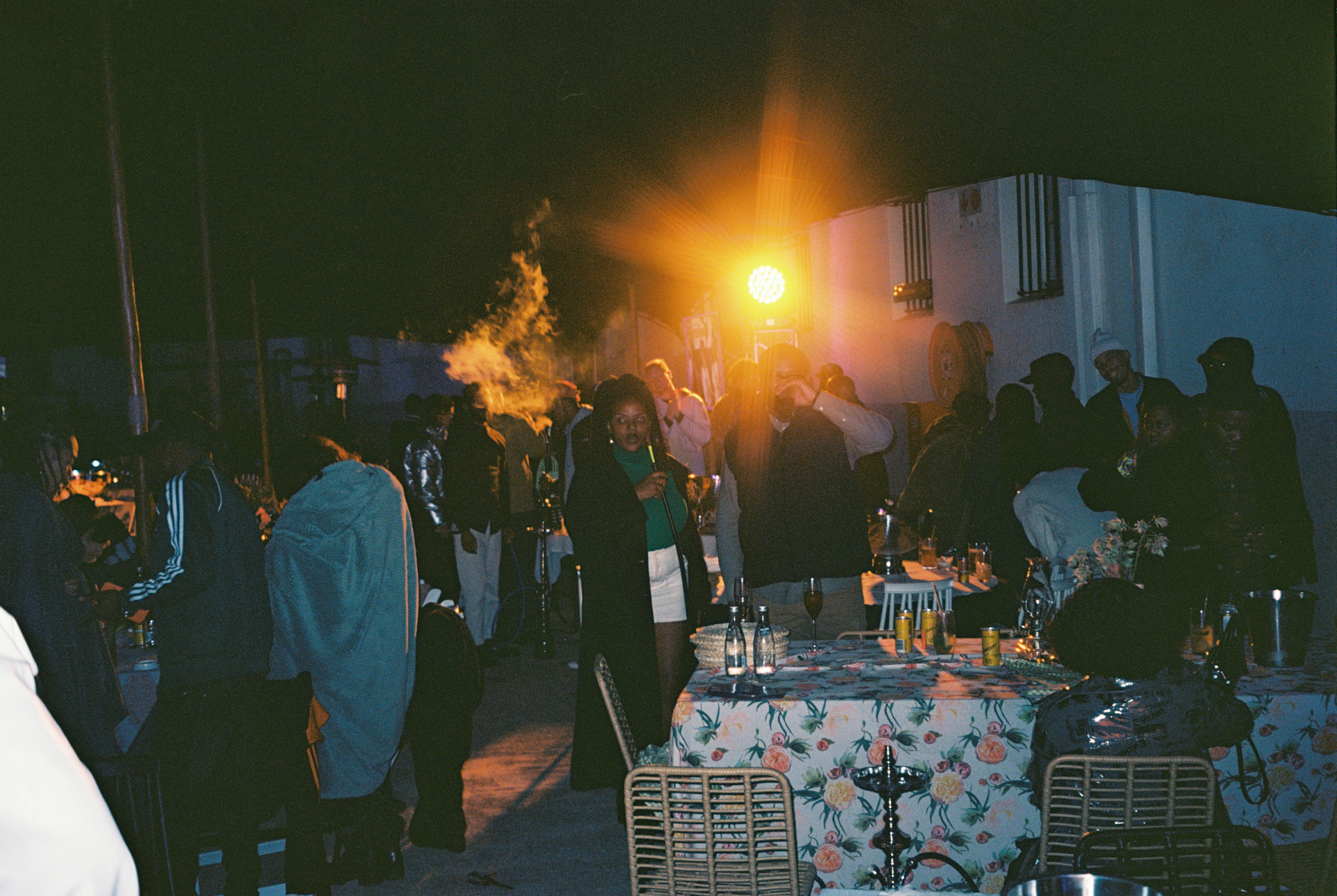

Later that week, there’s a live panel discussion at a bar in Rosebank, central Johannesburg. Producer and DJ, KMAT, is one of the guest speakers. She rocks a red afro and matching red biker jacket: cool, calm but doggedly passionate as she talks about her journey as an artist. “It was very hard when I was getting into the industry. It was before the whole viral dancing thing started. Men didn’t want competition, they didn’t want girls coming in and shaking things up. I had to fight for my gigs.” The male dominance in amapiano mirrors other electronic music scenes all over the world, but KMAT is one of the many women who have staked their claim in recent years, signing to Warner Music Africa and with her hit song ‘Mkhukhu (MMK)’ clocking up millions of streams.
“Even if I dress sexy, I know I can play, and I want people to see me for my talent. I’m a girl’s girl. We need to work together to do the most. I try to help as many female artists as I can.”
Other leading female artists in amapiano include Uncle Waffles, who landed a BBC Radio 1 residency in 2022, and DBN Gogo who played Coachella the same year. On top of that, the biggest managers in the scene are women too – namely Thulani Keupilwe who manages Kabza De Small and DJ Maphorisa, and Reba Shai who manages Focalistic.
On my final night in Jozi, I’m invited to a Spotify Africa awards ceremony and party to celebrate 10 years of amapiano. There, producer and DJ, Lady Du, wins an award for being the highest-streamed woman on Spotify’s Amapiano Grooves playlist. The 33-year-old is from the Vosloorus township, east of Johannesburg, and has been making music since she was nine years old. She takes to the stage and with tears in her eyes, grabs the mic and says, “All I have to say is; use what you have, to become who you want to be.”







